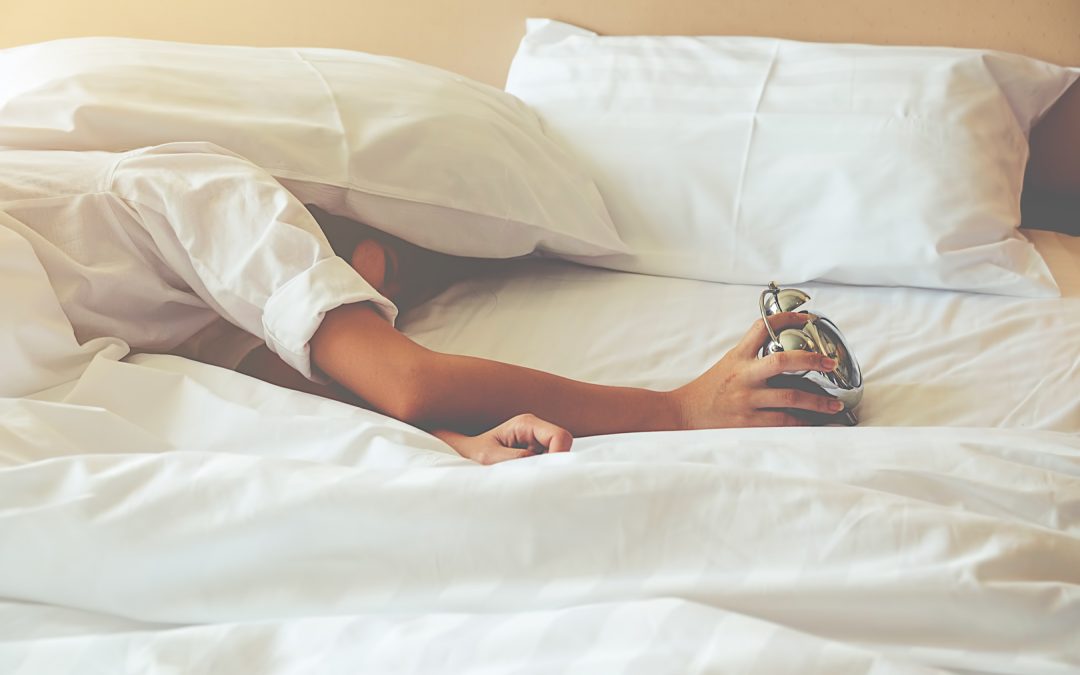This week marks the beginning of Event Wellbeing Month 2020, run by EventWell. Each week is themed on a different area of wellbeing. Week One is all about sleep.
We attended Michelle Morgan’s ‘bedinar’ which kicked off the month of talks, podcasts and activities. Michelle Morgan is the founder of Pjoys – PJs with a purpose. Michelle founded the company after a burn out which triggered anxiety and depression. But one day “the pyjamas I often found myself unable to get out of became my inspiration,” says Michelle. With a small team, Michelle began making pyjamas designed by brilliant artists, using the profits to support mental health charities, and the platform to begin a discussion around mental health. When Michelle experienced her burnout, she was told that when she talked about her mental health it made her colleagues feel awkward. PJoys is an essential part of Michelle’s mission: “to make mental health an everyday conversation.”
At the bedinar, in a beautiful pair of PJoys, Michelle told her story to us (many of whom were also wearing pyjamas) via zoom.
Inspired by Michelle’s story and EventWell’s theme for the week, we’ve put together a list of top tips to help you sleep better.
- Sleep is so important, experts put it up there with eating, drinking and breathing! It allows our body time to repair itself and our brains time to process. A regular sleep-wake cycle with consistent hours helps create a healthy sleeping habit.
- Stress can be huge factor in not being able to sleep. Studies show that even checking your work emails before you go to bed can keep you in a heightened state of anxiety. Allow yourself some time to relax before bed. Don’t check your work emails. Don’t check your social media. Don’t check your phone at all. Unwind with music and a good book. Maybe even treat yourself to a warm bath every once in a while.
- The darker the room the better. Whilst we love fairy lights as much as the next person, a National Sleep Foundation poll found that 73% of people say the darker the room, the better they sleep. The bright lights of electronic devices also keep you awake – another reason to put them to bed early. But make sure you’re getting plenty of natural light during the way, to create a healthy sleep-wake cycle. If possible, have your breakfast by a window!
- Noise makes sleeping difficult. If quiet isn’t possible where you are sleeping, you can use ‘white noise’ or ambient sound to help drown out loud noise which might wake you up. Use a fan or listen to soothing music to create this effect.
- A temperature in your bedroom of 60 – 67 degrees Fahrenheit/ 18C – 24C makes for the best night’s sleep according to experts.
- Get comfortable. Choose a pillow that works for your preferred sleeping position. For example, people who sleep on their backs might be better with a thinner pillow. Next time you buy a new mattress test how soft/ firm it is, to make sure it’s comfortable for you.
- Try to exercise earlier in the day. Whilst regular exercise helps people fall asleep faster and get more deep sleep, exercise too late in the evening can be stimulating and stop you from sleeping.
- Alcohol, caffeine and nicotine are all stimulants which contribute to sleeplessness. Avoiding them in the time before you go to bed is important for a good night’s sleep.
- Wear PJoys (obviously)!
Find out more about the work that PJoys are doing here. View the full programme for Event Wellbeing Month here.
Sources & Resources:
https://www.health.harvard.edu/newsletter_article/sleep-and-mental-health
https://www.priorygroup.com/blog/how-poor-sleep-affects-your-mental-health
https://www.headspace.com/sleep/how-to-sleep-better
https://www.helpguide.org/articles/sleep/getting-better-sleep.htm
https://www.nhs.uk/live-well/sleep-and-tiredness/how-to-get-to-sleep/
https://deye.com/an-insomniacs-guide-to-dehumidifiers/
Website: https://www.pjoys.co.uk
This article from Terry Cralle covers the most frequently asked questions about sleep disorders. For example:
- What are the most common types of sleep disorders?
- How do you know if you — or someone you love — has a serious sleep problem?
- What causes people to have issues with their sleep?
- How can you assess whether you’re getting good sleep?



